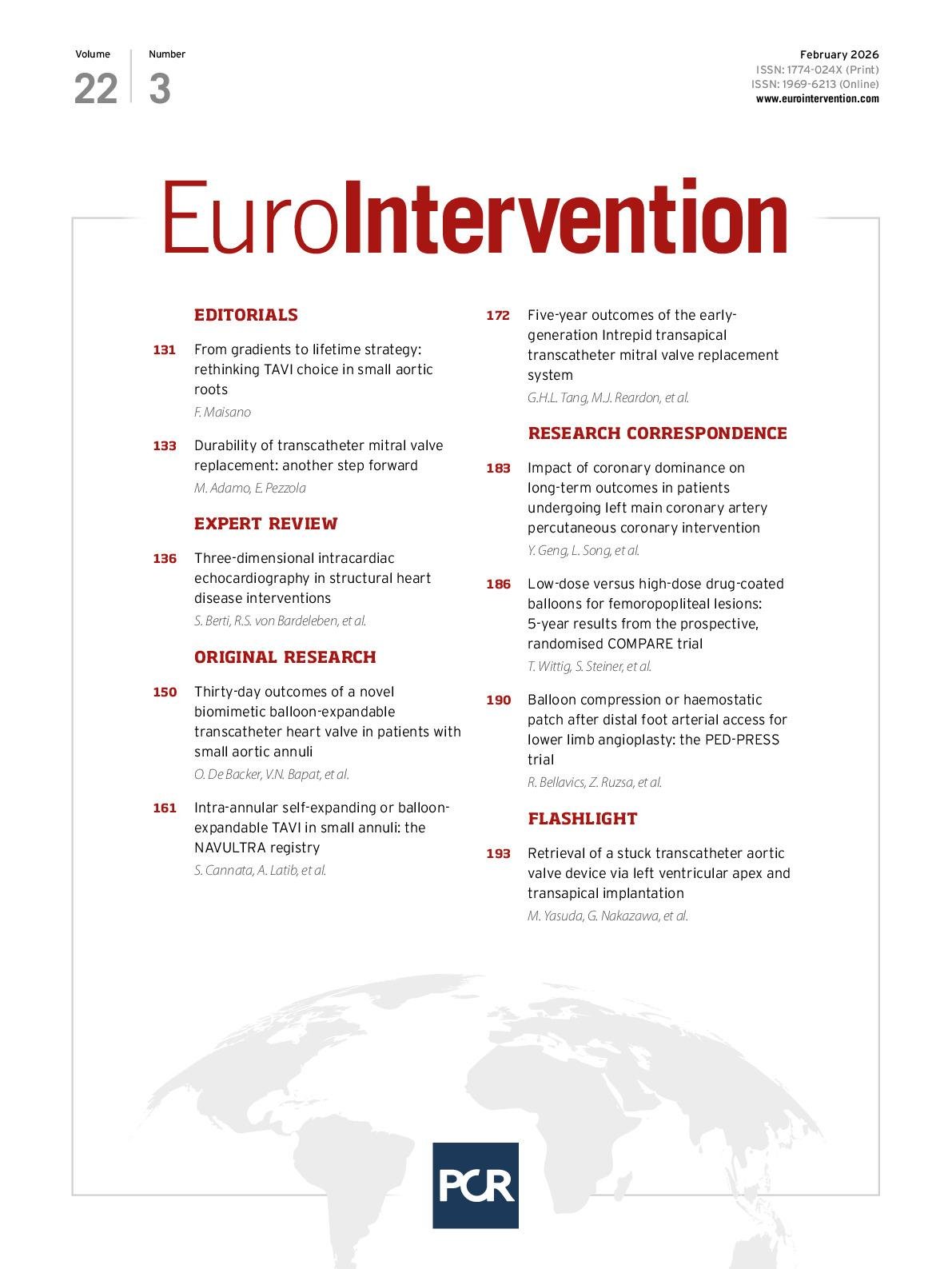Abstract
Background: Transcatheter mitral valve replacement (TMVR) offers a potential treatment option for select patients with mitral regurgitation (MR) deemed unsuitable for surgery or transcatheter repair, but data are limited on its long-term durability and performance.
Aims: We evaluated 5-year outcomes from the global Pilot Study with the Intrepid transapical (TA) TMVR system.
Methods: This multicentre, single-arm study evaluated the early-generation Intrepid TA system in patients with symptomatic ≥moderate-severe MR at high risk for mitral valve (MV) surgery. Echocardiograms and clinical events were independently adjudicated, and patients were followed for up to 5 years.
Results: Ninety-five patients were enrolled at 21 sites between 2015 and 2019. The mean age was 74.0±9.2 years, 43.2% of patients were female, the mean Society of Thoracic Surgeons Predicted Risk of Mortality score was 6.5±4.8%, 57.9% had prior heart failure hospitalisation (HFH), and 88.4% were in New York Heart Association (NYHA) Functional Class III/IV. Secondary MR was present in 78.7%, and 76.6% had a left ventricular ejection fraction ≤50%. Up to 5 years, all-cause mortality was 66.7% and HFH was 55.4%, with one 30-day MV reintervention (1.1%). Haemodynamic valve deterioration occurred in 1.4%, the median MV mean gradient remained stable at 3.6 mmHg (first and third quartiles: 3.0, 4.8 mmHg), ≤mild MR was present in 100% of patients, and no patient experienced paravalvular leak. NYHA Functional Class I/II was maintained in 84.6%.
Conclusions: In this 5-year follow-up of the early-generation Intrepid TA TMVR system, we observed sustained MR reduction, durable haemodynamic valve performance, and improved functional status among survivors. The APOLLO (ClinicalTrials.gov: NCT03242642) and APOLLO-EU (NCT05496998) trials using the transfemoral Intrepid system will further determine the role of TMVR in managing this high-risk patient population. ClinicalTrials.gov: NCT02322840
Sign up for free!
Join us for free and access thousands of articles from EuroIntervention, as well as presentations, videos, cases from PCRonline.com

